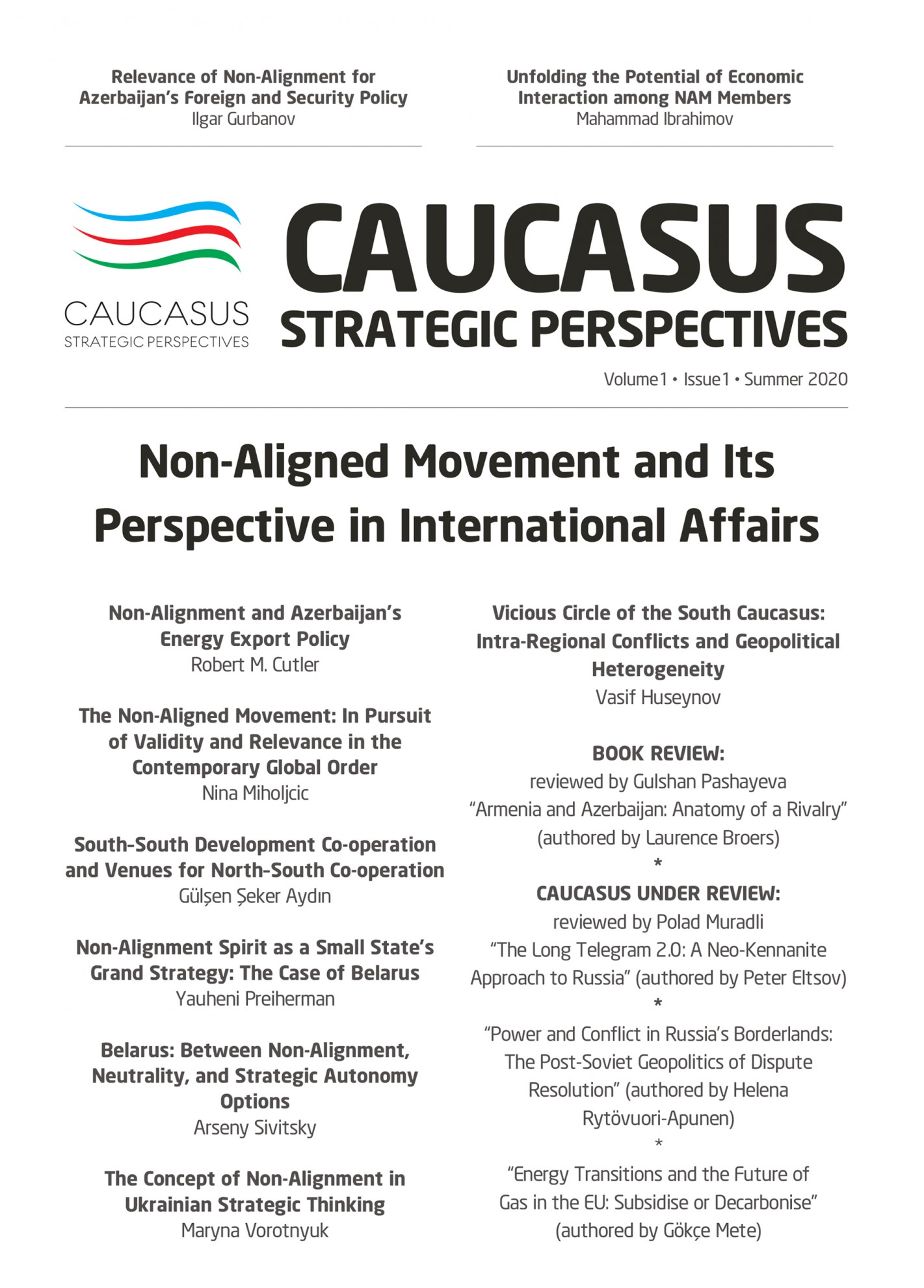Belarus: Between Non-Alignment, Neutrality, and Strategic Autonomy Options
After Belarus obtained independence in 1990, the evolution of the country’s foreign policy identity has passed through several stages depending on the geopolitical environment around the country; in particular, the state of relations between the West and Russia. By the end of the 1990s, Belarus already appeared to be in a geopolitical deadlock. Its relations with the West deteriorated dramatically. Minsk also lost the battle for its strategic vision of the architecture and leadership role in the Union State of Belarus and Russia. Against this background, in 1998 Belarus took the decision to join the Non-Aligned Movement (NAM) in order to assess other foreign policy options. What the NAM’s role should be in the evolution of Belarus’s foreign policy identity,in comparison with alternative foreign policy options, forms the main research question of this article. Although the NAM played a significant role in helping to diversify the foreign policy of Minsk with third countries, it did not manage to completely resolve the strategic task of balancing the pressure and influence applied by the West and Russia on Belarus. The symbolic significance of membership of the NAM relates to the fact that it contributes to Belarus’s strategic intention to become a neutral state, as recorded in national strategic concepts and doctrines. In practical terms, Europe’s current security environment – determined by the 2008 Russo-Georgian war,the Russia–Ukraine conflict since 2014, and the subsequent political and military confrontation between Russia and the West – has become a testing ground for Belarus’s foreign policy identity that can be characterized as de facto neutrality or non-alignment, even though Belarus takes part in political-military alliances together with Russia. However, these circumstances do not prevent Belarus from exercising independent foreign and military policies, as these are based on the phenomenon of the strategic autonomy of Belarus vis-à-vis Russia.
Latest news
- 12/27/2024 Call for Submissions-Caucasus Strategic Perspectives, Volume 6, Issue 1, Summer 2025 650 views
Popular articles
- 07/18/2022 The Russia–Ukraine War: Perspective of Azerbaijan 4297 views
- 10/14/2020 The Non-Aligned Movement: In Pursuit of Validity and Relevance in the Contemporary Global Order 3283 views
- 10/14/2020 Vicious Circle of the South Caucasus: Intra-Regional Conflicts and Geopolitical Heterogeneity 3277 views
- 10/14/2020 Relevance of Non-Alignment for Azerbaijan’s Foreign and Security Policy 3003 views





